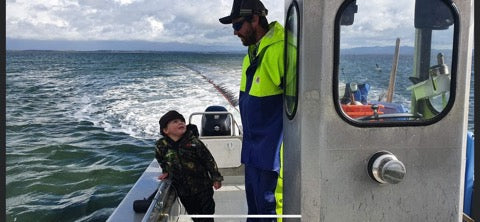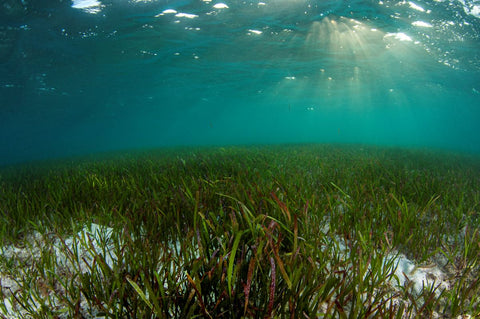As the bushfire season approaches, spare a thought for how these events can also have a devastating impact on our coastal fisheries...
In December of 2005, a major bushfire swept through Wilsons Promontory. Over the next few weeks, over 25,000 hectares would be lost to the flames. Imagine the MCG pitch multiplied over 40,000 times. Just four years later, Victoria - and indeed, the entire country - was rocked by the events of Black Saturday. 173 people lost their lives and over 2000 homes were destroyed.
There is a tangible cost to these tragic fire events: lives lost, properties destroyed. But there are also costs which are not necessarily recognised in the aftermath. Luke Anedda, president of the Corner Inlet Fisheries Habitat Association (CIFHA), has a fairly unique recollection of the weeks and months after these catastrophic fire events. “It’s never been categorically researched, but after they sprayed Wilsons Prom with the fire retardant, we then had all this heavy rain. It washed the chemicals into the water and within about two or three weeks, we lost huge populations of seagrass in Corner Inlet. It just died.”

Seagrass derives most of its nutrients from the water quality. Their roots are mainly there to keep them anchored in place and don’t offer much by way of nutrient retention. For a commercial fisherman like Luke, who describes the inlet as his “farm”, it was a distressing event. “I’ve been fishing Corner Inlet from day dot,” he explains. “We need to make sure it is as healthy and thriving as possible so our kids can fish it well into the future.”
While seagrass may seem innocuous, it is actually a critical part of any marine environment, providing a nursery for juvenile fish before they are able to survive and thrive in open water. If you remove this safe space, many fish will not survive long enough to be viable catches. It’s a pretty simple equation: A loss of seagrass = A loss of fish.

According to the IPCC, extreme weather events of this type will become more frequent, and if we fail to recognise the hidden toll of extreme fire events, fish stocks could decline before we’ve even realised there is a problem.
OneFishTwoFish partners with organisations who are protecting seagrass in various waterways around the country. In joining us, you can help safeguard our seafood stocks against the ubiquitous threat of climate change.

